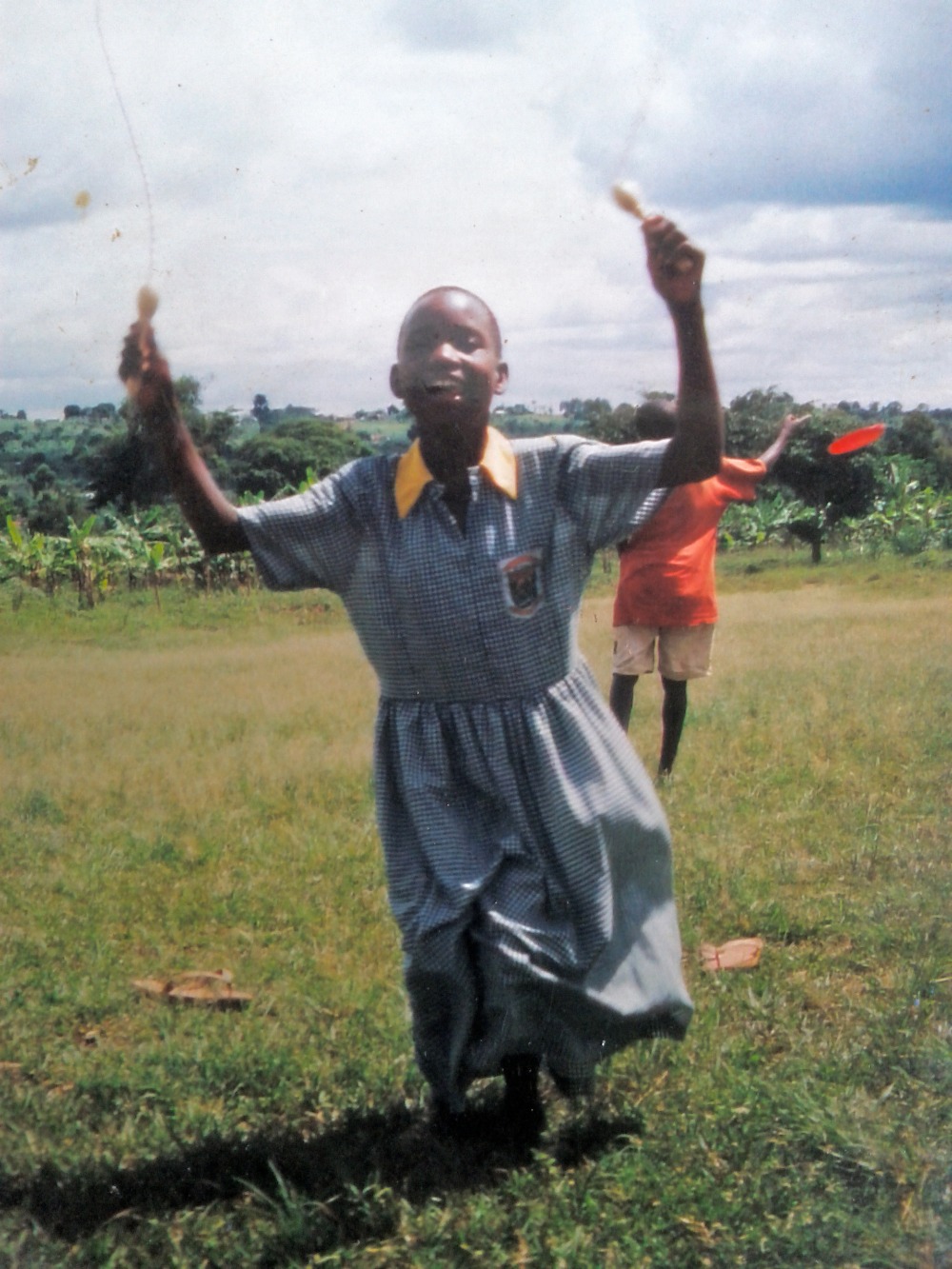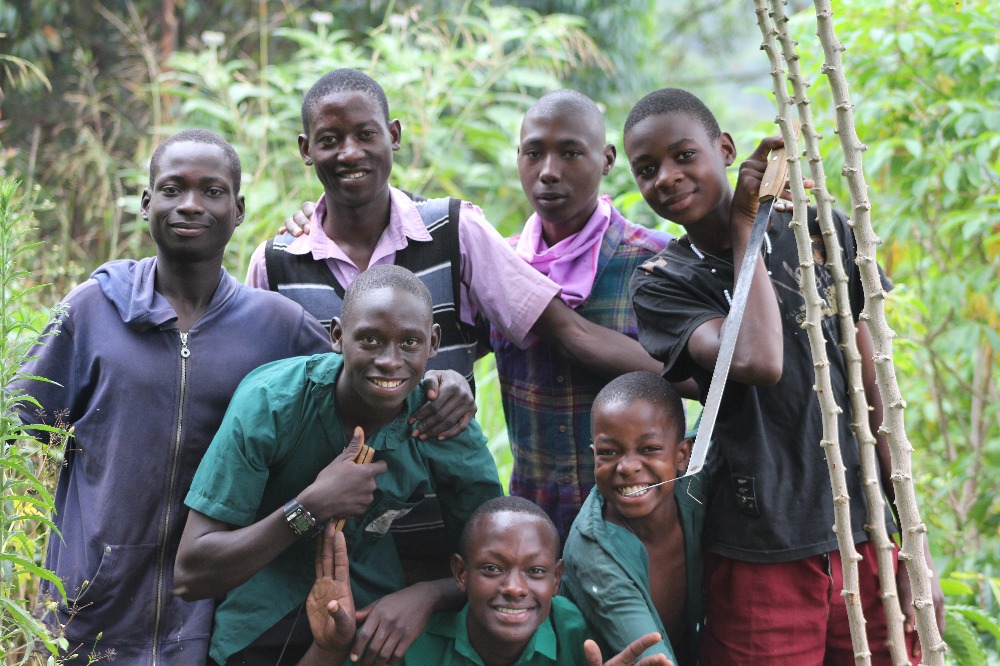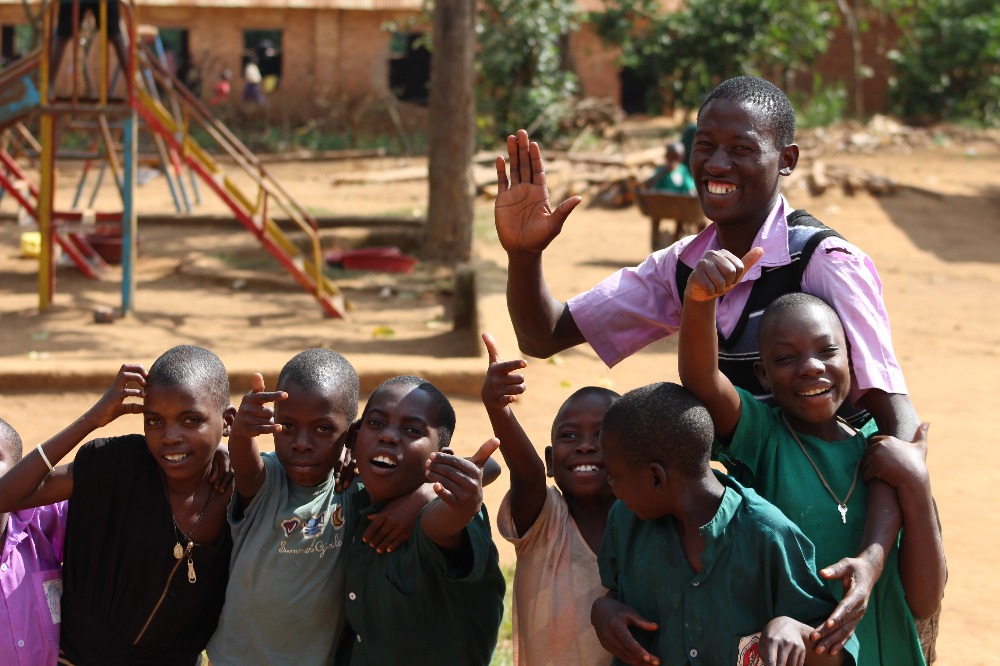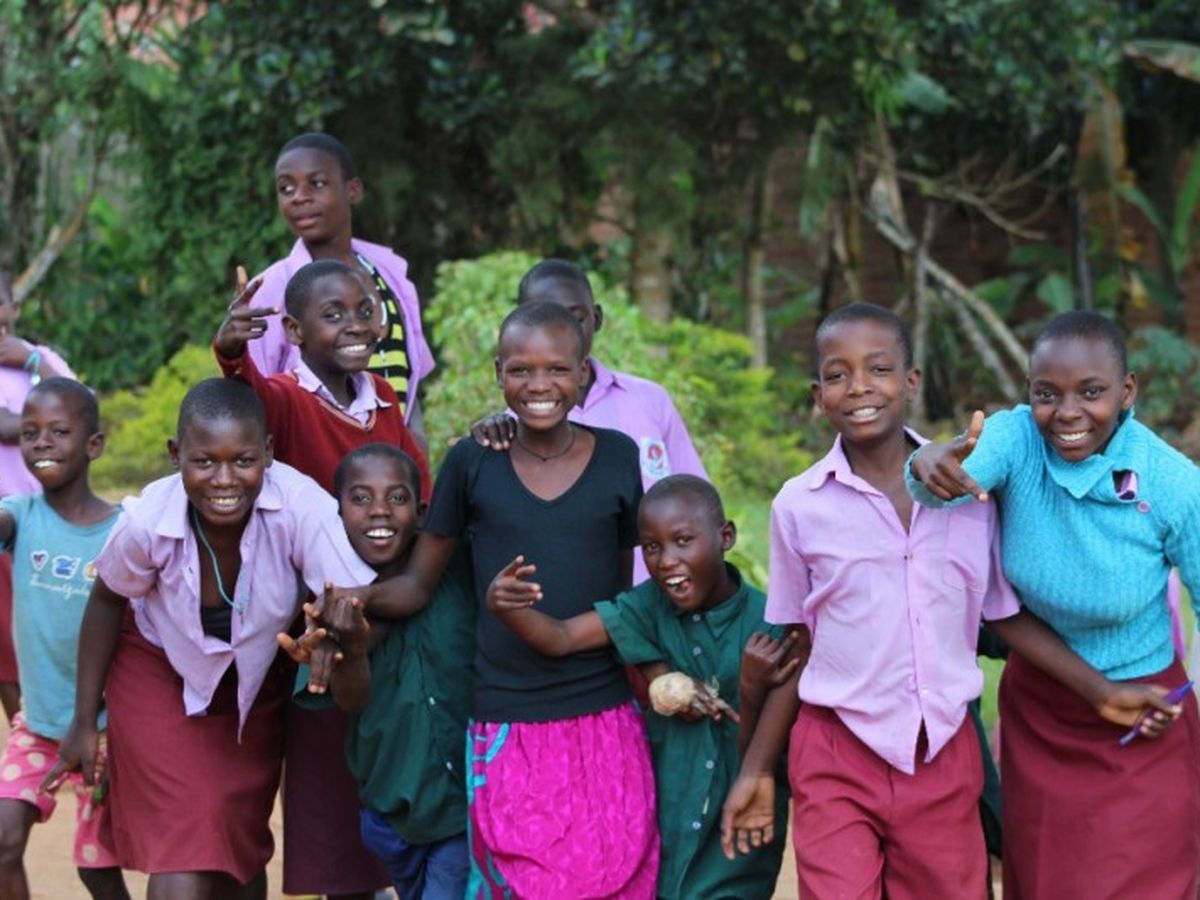Founded by Mrs. Scovia Nsamba in 1996, the Good Samaritan School for the Deaf has become a place of education and loving care for over one hundred deaf students in south-east Uganda. Scovia’s interest in deaf education grew from her love of her granddaughter, Madrine, who was born deaf and was under Scovia’s care. At the time, there were no resources available for Madrine to get an education. Believing in every child’s right to an education, Scovia made it her mission to get Madrine into school.

Every week Scoiva made the five-hour drive from Kitengesa to Kampala. While Madrine attended a special school for the deaf, Scovia took adult sign language classes. Not everyone supported this effort. In the local language, deaf children are called “kasiru.” It means “one who cannot be taught.” But Scovia was convinced that she and Madrine could prove them wrong. They spent five years commuting to and from Kampala and Madrine showed such promise that she was sponsored to attend boarding school. Scovia convinced the rest of her family to learn sign language so that Madrine would feel loved and accepted when she came home for her school holidays. Scovia proceeded to the Ugandan National Association for the Deaf and (UNAD) to receive her formal certification in sign language education.
Only a few short years later Madeline passed away on a visit to see her father and stepmother as a result of domestic violence. Scovia took this as her second call to action. She realized how horribly deaf children were treated, even in her own family, and she set out to change the perception of the deaf as “kasiru.” She’d seen herself the intelligence and love that grows from treating all children with caring and respect and by helping them to get an education. With her husband, Edward’s, support, Scovia established the Good Samaritan School for the Deaf in 1996, teaching two deaf pupils from her house. She received no monetary compensation for this, but upon seeing how quickly her students began to thrive, she began to search out other deaf children to assist. Because of the stigma associated with being deaf, this was no easy task. Families often hid their children from the world, some even tying them up in the backyard to keep away the “shame” of having a deaf child. But Scovia kept searching, and within nine years she had 38 students studying in her living room during the day and sleeping there at night.
The school has grown in leaps and bounds since that time. In 2005, William Oberle of the W.O. foundation raised the money to build a block of classrooms. A dormitory was also built to house the students more comfortably. As the school grew, community members began to see the potential in every child and began to believe that deaf children could, indeed, learn. More students poured in.

After reaching a peak of 105 students in 2014, the school currently serves 75 students ranging from a baby class for six-year-olds to a Primary 7 class, equivalent to grade 7 in Canada or the USA. The school has also added a vocational program for Primary 7 graduates where students learn tailoring, sweater-knitting, and hairdressing.
Perhaps the most useful gift that the school has given to its many students is the ability to converse in sign language. Imagine being born into a family and not being able to tell your mother that you were hungry. Imagine not being able to tell your siblings that you wanted to play, too. Imagine never being told you were loved because you couldn’t hear it and your parents couldn’t sign it. Sign language training allowed students to communicate with their families, many for the first time. But that is only half of the battle. Parents need to be able to sign back.

For the past few years, the Good Samaritan School has been holding sign language seminars at the end of August to help parents learn their child’s language. With the support of university interns from Canada, this three-day seminar has taught parents and community members how to greet their child, assign chores, ask about their child’s day, say “I love you,” and much more that is vital to family life. The seminar proves to parents once again that “kasiru” is the wrong way to describe their child. A better word would be “limitless.”
The school is struggling financially as many of its students come from very limited means and many cannot afford to pay even the modest school fees. But Scovia believes so strongly in the benefits of education and caring for her students that she does not turn anyone away. All children, she believes, are welcome here. At this moment in time, the sign language seminar will not be able to proceed without outside help. As this program is often the only chance that families have to learn Ugandan Sign Language, its discontinuation would be heartbreaking for many families, and especially for the children at the school who will be heading home for term break after the seminar.
The seminar costs approximately 2,000,000 Ugandan shillings, or about $750 CAD. Most of those costs go towards paying for food, but reimbursing parents from distant villages for their transport and paying the teachers for the event also contribute to this cost. Should we be able to raise more than $750, we would like to be able to print USL (Ugandan Sign Language) guides for parents to bring home with them, which would increase the sustainability of their sign skills.
Thank you for reading, and if you decide to donate: thank you so much, from the bottom of our hearts. We cannot tell you how much your contribution means to us and to the students at the Good Samaritan School for the Deaf.
Love,
Mary and Rachel, GSSD Volunteers
PS - check out the school's website for photos, videos, and more details about the school!

